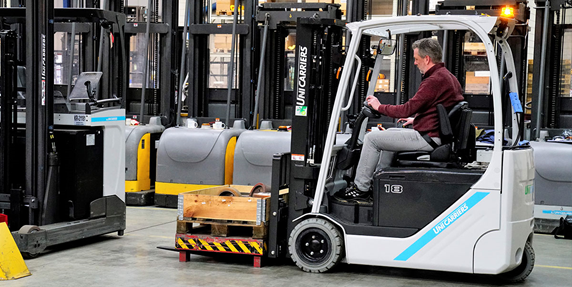
As the COVID-19 crisis continues all over the world, materials handling professionals are focusing on how to make it through the crisis and ensure their businesses returns to full strength once things return to normal.
Many businesses are operating at reduced capacity and with fewer resources, or even completely shut down. It's natural that at a time like this, investing in forklift training for operators might be low on the list of priorities.
But eventually the crisis will be over, and when things return to normal, many businesses will want to strengthen their operation for the future, increase their efficiency, and ensure that they can continue to perform well if similar crises happen in future.
For businesses like these, investing in driver training is essential. Operators who are well-trained can get the job done faster, smarter, and more safely. Importantly, an operator who knows their truck and how to get the most out of it works much more efficiently than a less-competent operator.
This means they can get more work done over the course of their shift, which is vital when you have less manpower in your operation, either due to the economic situation or because of illness and social distancing measures.
When the worst of the crisis is over, it will be time to start preparing for the future. If you want to make sure your business thrives in a post-coronavirus world, making sure your materials handling staff are well-trained is vital.
Getting approval for training initiatives within a company can be difficult sometimes. That's why we've created a free guide, 6 things people say about forklift training - and why they're wrong. It gives you the arguments you need to convince colleagues about the benefits that investing in training can have for all areas of your materials handling operation.






































Comment